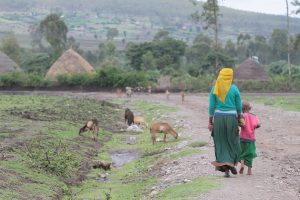Re-post from IFPRI.ORG.
A new wave of gender-related land reforms has swept across Africa south of the Sahara in recent years. These reforms have incorporated innovative approaches to land administration, including legal provisions protecting women’s land rights, and efforts to minimize gender inequalities concerning land, housing, and property rights. In 2003, for instance, the African Union (AU) adopted the Protocol on the Rights of Women in Africa, focusing on human, social, economic, and political rights - widely referred to as 'the Maputo Protocol. In 2015, the AU Specialized Technical Committee on Agriculture and Rural Development, Water, and Environment adopted a recommendation aimed at facilitating women’s economic empowerment: That member states move toward allocation of 30% of land to women through legislative and other mechanisms. Various countries have also taken measures such as the explicit recognition of women’s equal rights and the prohibition of gender-based discrimination; promotion of joint ownership and registration of land; and laws on inheritance and property rights for widows and children. Read more.
